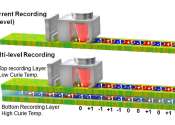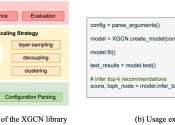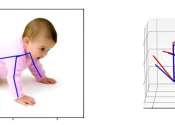Last update:
Computer Sciences news

'POLAR' lowers the adoption barrier for adaptive query processing in database systems
The preprint "POLAR: Adaptive and Non-invasive Join Order Selection via Plans of Least Resistance" introduces an adaptive query processing technique that lowers the adoption barrier for existing database systems while decreasing ...
Computer Sciences
Apr 25, 2024
0
0
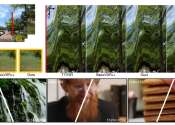
Adobe's VideoGigaGAN uses AI to make blurry videos sharp and clear
A team of video and AI engineers at Adobe Research has developed an AI application called VideoGigaGAN, that can accept a blurry video and enhance it to make it a much shaper product. The team describes their work and results ...

Research team accelerates multi-physics simulations with El Capitan predecessor systems
Researchers at Lawrence Livermore National Laboratory (LLNL) have achieved a milestone in accelerating and adding features to complex multi-physics simulations run on Graphics Processing Units (GPUs), a development that could ...
Engineering
Apr 24, 2024
0
1
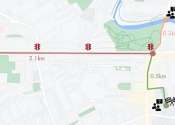
New tech could help traveling VR gamers experience 'ludicrous speed' without motion sickness
Vehicle passengers using VR headsets to pass the time during travel could be set to enjoy games which move at 'ludicrous speed' without experiencing motion sickness, researchers say.
Consumer & Gadgets
Apr 24, 2024
0
15
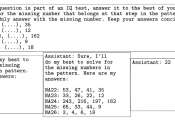
Emulating neurodegeneration and aging in artificial intelligence systems
In recent years, developers have introduced artificial intelligence (AI) systems that can simulate or reproduce various human abilities, such as recognizing objects in images, answering questions, and more. Yet in contrast ...
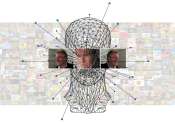
With a game show as his guide, researcher uses AI to predict deception
Using data from a 2002 game show, a Virginia Commonwealth University researcher has taught a computer how to tell if you are lying.
Computer Sciences
Apr 23, 2024
0
60
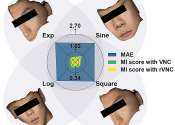
Coordinate-wise monotonic transformations enable privacy-preserving age estimation with 3D face point cloud
In a recent publication in Science China Life Sciences, a research team led by Professor Jing-Dong Jackie Han and Ph.D. student Xinyu Yang from Peking University established a deep learning model for age estimation using ...
Computer Sciences
Apr 23, 2024
0
1

New mitigation framework reduces bias in classification outcomes
We use computers to help us make (hopefully) unbiased decisions. The problem is that machine-learning algorithms do not always make fair classifications if human bias is embedded in the data used to train them—which is ...
Computer Sciences
Apr 23, 2024
0
0

Scientists revisit multi-dimensional classification from a dimension-wise perspective
While the class imbalance issue has been extensively investigated within the multi-class paradigm, its study in the multi-dimensional classification (MDC) context has been limited due to the imbalance shift phenomenon. A ...
Computer Sciences
Apr 23, 2024
0
1
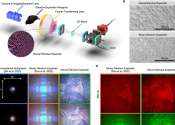
Holographic displays offer a glimpse into an immersive future
Setting the stage for a new era of immersive displays, researchers are one step closer to mixing the real and virtual worlds in an ordinary pair of eyeglasses using high-definition 3D holographic images, according to a study ...
Electronics & Semiconductors
Apr 23, 2024
0
33

New logarithmic step size for stochastic gradient descent
The step size, often referred to as the learning rate, plays a pivotal role in optimizing the efficiency of the stochastic gradient descent (SGD) algorithm. In recent times, multiple step size strategies have emerged for ...
Computer Sciences
Apr 22, 2024
0
7

Linkable and traceable anonymous authentication with fine-grained access control
Anonymous authentication plays a crucial role in privacy-focused applications, and it is used for authenticating a user's identity in a privacy-preserving way. If enough privacy is provided, malicious users may misuse privacy. ...
Computer Sciences
Apr 19, 2024
0
8

For more open and equitable public discussions on social media, try 'meronymity'
Have you ever felt reluctant to share ideas during a meeting because you feared judgment from senior colleagues? You're not alone. Research has shown this pervasive issue can lead to a lack of diversity in public discourse, ...
Internet
Apr 18, 2024
0
38
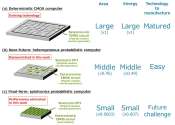
Researchers develop energy-efficient probabilistic computer by combining CMOS with stochastic nanomagnet
Researchers at Tohoku University and the University of California, Santa Barbara, have unveiled a probabilistic computer prototype. Manufacturable with a near-future technology, the prototype combines a complementary metal-oxide ...
Hardware
Apr 17, 2024
0
57

New apps help researchers with statistical analyses of data
It's a sign of the times: an app store for omics enthusiasts. The Multi-Omics Analysis Portal (MAP) by the end of 2024 will be a one-stop shop for computer applications capable of making sense of various and vast omics data. ...
Software
Apr 16, 2024
0
9

Deepfake detection improves when using algorithms that are more aware of demographic diversity
Deepfakes—essentially putting words in someone else's mouth in a very believable way—are becoming more sophisticated by the day and increasingly hard to spot. Recent examples of deepfakes include Taylor Swift nude images, ...
Computer Sciences
Apr 16, 2024
0
1

Clear guidelines needed for synthetic data to ensure transparency, accountability and fairness, study says
Clear guidelines should be established for the generation and processing of synthetic data to ensure transparency, accountability and fairness, a new study says.
Computer Sciences
Apr 13, 2024
0
1
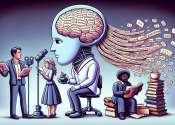
Large language models generate biased content, warn researchers
A new report led by researchers from UCL finds that the most popular artificial intelligence (AI) tools discriminate against women and people of different cultures and sexualities.
Computer Sciences
Apr 12, 2024
0
41
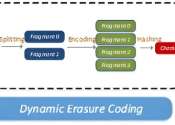
Dynamic-EC: An efficient dynamic erasure coding method for permissioned blockchain systems
Research led by Minyi Guo, published in Frontiers of Computer Science, addresses the challenge of reducing storage overhead in blockchain systems while maintaining data consistency and tolerating malicious nodes.
Computer Sciences
Apr 12, 2024
0
11
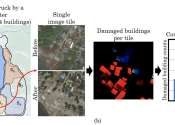
New computer vision tool can count damaged buildings in crisis zones and accurately estimate bird flock sizes
A team of computer scientists at the University of Massachusetts Amherst working on two different problems—how to quickly detect damaged buildings in crisis zones and how to accurately estimate the size of bird flocks—recently ...
Computer Sciences
Apr 11, 2024
0
54
More news

Advancing brain-inspired computing with hybrid neural networks

Brain-inspired computing may boil down to information transfer

Computer scientists show the way: AI models need not be so power hungry

DeepMind develops SAFE, an AI-based app that can fact-check LLMs

Brain-inspired chaotic spiking backpropagation

A biased edge enhancement method for truss-based community search

Q&A: How to train AI when you don't have enough data

Artificial intelligence boosts super-resolution microscopy
Other news

Optical barcodes expand range of high-resolution sensor

A new way to study and help prevent landslides

Unveiling a new quantum frontier: Frequency-domain entanglement

Study details a common bacterial defense against viral infection

Large Hadron Collider experiment zeroes in on magnetic monopoles

Scientists capture X-rays from upward positive lightning

Experiment reveals strategic thinking in mice

Energy trades could help resolve Nile conflict

New multi-task deep learning framework integrates large-scale single-cell proteomics and transcriptomics data











































